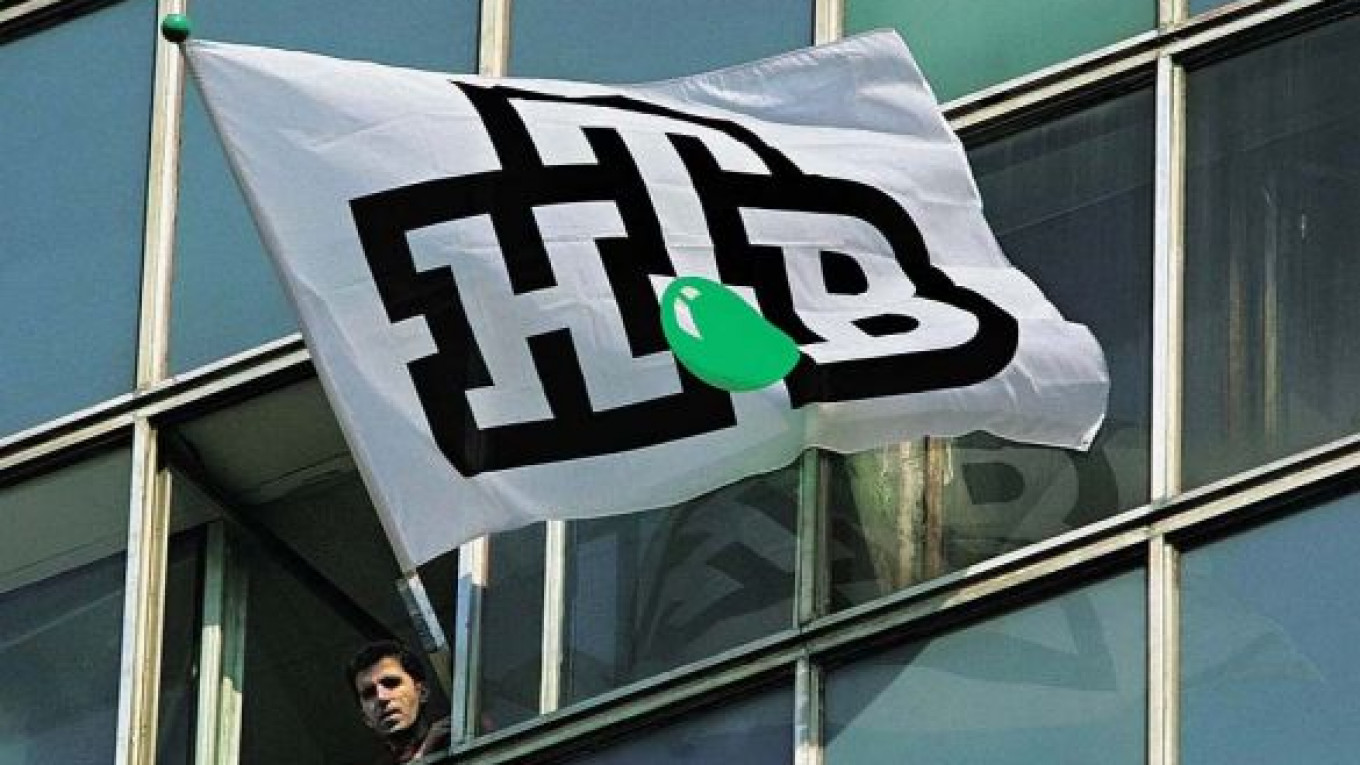You won't hear about it on television, but this Friday, Russian media mark a milestone date. Ten years ago, the flagship private channel NTV was taken over by state-owned Gazprom.
Its trademark three-letter logo is still on air, but the channel is completely different from what it was before the Kremlin launched its campaign to bring the leading television channels under its control — starting with NTV.
"The process that the state started 10 years ago came to its logical end," Yevgeny Kiselyov, NTV's former director, said by telephone Thursday.
NTV and other television channels were known in the 1990s for daring, if often biased, political coverage, but the media landscape changed drastically in the following decade, with most channels coming under the direct or indirect control of the state.
Critics say television has become a staple of the regime, translating the Kremlin's stance to the populace — 80 percent of whom use television as their primary source of information on politics, according to a March poll by VTsIOM, the state pollster.
State-controlled media and high oil prices "are the two legs of Putin's regime," said Vladimir Pribylovsky, head of the Panorama think tank.
"It started with NTV but soon transferred to other stations," said Kiselyov, who left Russia in 2009 to host a show on Ukrainian television. "Today, there is no federal channel that is independent of the authorities."
In the 1990s, NTV was owned by tycoon Vladimir Gusinsky. He was arrested in connection with an embezzlement case a month after Vladimir Putin was elected president in 2000, and claimed he was only released after agreeing to hand his stake in NTV over to Gazprom.
A year of heated legal battles followed, supported by NTV's crew of several hundred journalists, widely believed to be the most professional television team in the country. But on April 16, 2001, Gazprom-installed management took over the cash-strapped channel over a $210 million debt.
The majority of the crew moved to the revamped TV6 channel, owned by tycoon Boris Berezovsky, but that channel faced the same fate as NTV in 2002, while Berezovsky went into exile, moving to London. While keeping its trademark green-dot logo, NTV shifted its programming under new management, focusing on pulp crime reporting and low-brow action series instead of critical political coverage.
The situation will not change until people learn that the media can improve their everyday lives, Pribylovsky said. "Until regular people in the regions understand that their problems with bureaucracy, the ecology and the like can be addressed through the media, nothing will happen," he said.
A Message from The Moscow Times:
Dear readers,
We are facing unprecedented challenges. Russia's Prosecutor General's Office has designated The Moscow Times as an "undesirable" organization, criminalizing our work and putting our staff at risk of prosecution. This follows our earlier unjust labeling as a "foreign agent."
These actions are direct attempts to silence independent journalism in Russia. The authorities claim our work "discredits the decisions of the Russian leadership." We see things differently: we strive to provide accurate, unbiased reporting on Russia.
We, the journalists of The Moscow Times, refuse to be silenced. But to continue our work, we need your help.
Your support, no matter how small, makes a world of difference. If you can, please support us monthly starting from just $2. It's quick to set up, and every contribution makes a significant impact.
By supporting The Moscow Times, you're defending open, independent journalism in the face of repression. Thank you for standing with us.
Remind me later.






